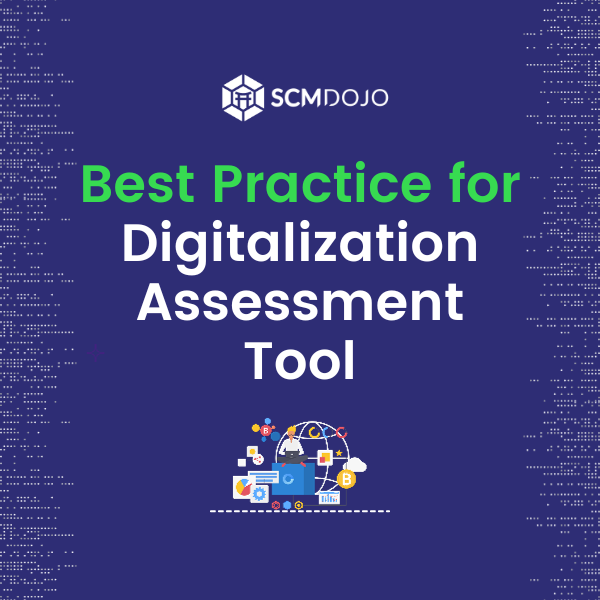Digital learning has reshaped the realm of education, providing college students with the chance to explore a wide range of subjects online. With the rise of digital education, students now have access to courses that were once considered too specialized or unusual for traditional classrooms. This shift has opened doors for learners to delve into unique and fascinating fields of study, such as supply chain, from the comfort of their homes.
A principal benefit of this shift in education is the enhanced flexibility and accessibility it delivers. Whether it’s a student juggling part-time work or someone living in a remote area, e-learning makes education more inclusive and adaptable to individual needs. In this context, even a book report writer seeking someone to write my discussion post to broaden their horizons can learn something new and exciting online.
Learning Beyond Conventional Boundaries
Astrobiology
Universities around the globe are increasingly offering courses in astrobiology, a captivating field that melds principles of astronomy, biology, and geology. This multidisciplinary study is not just about the search for extraterrestrial life. It explores the essence of life, its origins on Earth, and the requisite conditions for its existence.
Students engaged in astrobiology courses get to examine the potential for life in other planets’ atmospheres, study extremophiles on Earth, and ponder the ethical implications of discovering life beyond our planet. This rich blend of subjects provides a comprehensive look at the cosmos and our place within it, challenging students to think broadly and creatively.
Ethical Hacking
In an era where digital security is paramount, courses in ethical hacking are becoming increasingly popular. These programs go beyond basic cybersecurity principles to teach students the tactics and strategies used by hackers. This knowledge is crucial for identifying and rectifying vulnerabilities in digital systems.
Students learn about everything from penetration testing to cybersecurity law, preparing them for a range of roles in the tech industry. These courses often involve real-life scenarios and case studies, offering a deeply engaging and practical learning experience. By thinking like a hacker, students become adept at defending against the very threats they study, making them invaluable assets in our tech-driven world.
Space Law and Policy
With the growing interest in space exploration and commercial space activities, universities are now offering courses in Space Law and Policy. This specialized yet increasingly relevant field addresses the intricate legal and regulatory facets of space-related activities. It includes studying international treaties, such as the Outer Space Treaty, and national space laws, addressing issues like the ownership of celestial bodies, liability for space debris, and the use of space for military purposes. Students in these courses explore the legal challenges of emerging space activities, such as asteroid mining and space tourism, preparing them for careers in an area where law and technology intersect in unprecedented ways.
Artificial Intelligence in Healthcare
Another emerging field in higher education is the application of Artificial Intelligence (AI) in healthcare. These courses focus on how AI and machine learning technologies are revolutionizing medical diagnostics, treatment planning, and patient care. Students learn about the development of AI algorithms for processing medical data, ethical considerations in AI applications in healthcare, and the future implications of AI in medicine. This interdisciplinary field combines aspects of computer science, medical science, and ethics, equipping students with the skills to contribute to cutting-edge developments in healthcare technology, from improving diagnostic accuracy to personalized medicine and beyond.
Innovative Teaching for Uncommon Subjects
Interactive Online Platforms
Advanced e-learning platforms are transforming the way uncommon subjects are taught. In fields like forensic science, these platforms provide interactive simulations and virtual labs that are crucial for hands-on learning. Students can engage in crime scene investigation simulations, analyze virtual evidence, and apply criminological theories in a controlled, digital environment.
This method is especially useful for disciplines that blend theoretical and practical learning. It empowers students to try, err, and learn in a secure online environment, thereby deepening their grasp and memory of intricate topics.
Collaboration with Experts
Online courses also offer the opportunity for collaboration with experts in various fields. For instance, courses in oceanography might connect students with marine biologists conducting groundbreaking research. Through guest lectures, live Q&A sessions, and even virtual field trips, students gain firsthand knowledge from those actively engaged in the field.
This direct exposure to experts not only enriches the learning experience but also provides networking opportunities and insights into potential career paths.
Gamified Learning Challenges
Incorporating gamified learning challenges is an innovative way to teach uncommon subjects, such as quantum computing or archaeoastronomy. By turning complex concepts and problem-solving exercises into game-like scenarios, these platforms engage students in a fun and interactive way.
For example, a course on quantum computing might include challenges where students ‘unlock’ new levels of knowledge by solving quantum algorithms, or an archaeoastronomy course could feature quests for identifying celestial alignments in ancient structures. These gamified experiences make daunting subjects more approachable and enjoyable, helping to maintain student engagement and motivation.
Use of Augmented Reality (AR) and Virtual Reality (VR)
The use of Augmented Reality (AR) and Virtual Reality (VR) is transforming how subjects requiring immersive learning experiences are taught. For example, in a course on ancient history or architecture, students can use VR to virtually tour ancient ruins or reconstructed historical sites. In a paleontology course, AR can bring fossilized creatures to life, providing a 3D perspective of their size, structure, and movement. These technologies not only enhance the learning experience but also provide a deeper understanding of the subject matter by allowing students to ‘experience’ rather than just read about these topics.
The Role of E-Learning in Personalized Education
E-learning in unique fields, such as digital art therapy, which blends art, psychology, and technology, shows how online education can cater to diverse interests. Students interested in this innovative field can explore how digital art can be used as a therapeutic tool, learning both art techniques and psychological theories.
Additionally, the flexibility of e-learning platforms allows students to tailor their education to their specific interests and career goals. They have the freedom to select courses that resonate with their interests, learn at a pace that suits them, and even blend various study areas to forge a distinctive academic journey.
The Benefits of Studying Niche Subjects Online
Access to Specialized Knowledge
A notable advantage of digital learning is its provision of access to niche knowledge. For instance, courses in uncommon languages offer learners the opportunity to study dialects not typically taught in local educational institutions. Indigenous studies, another example, provide insights into the history, culture, and perspectives of indigenous peoples, enriching students’ understanding of global cultures and histories.
This access to specialized knowledge not only broadens students’ horizons but also helps preserve and promote the study of less common subjects.
Career Advancement Opportunities
Pursuing specialized subjects online opens avenues for distinctive professional paths. For instance, courses in sustainable agriculture teach students about the latest practices in environmentally responsible farming, preparing them for careers in a sector that is becoming increasingly important. Similarly, courses in renewable energy technologies offer insights into the future of energy production, equipping students with the skills needed in a rapidly evolving industry.
By gaining expertise in these specialized fields, students can position themselves at the forefront of emerging industries and job markets.
Flexibility and Customized Learning Paths
Online education offers unparalleled flexibility, especially beneficial for niche subjects. Learners can customize their educational journey to accommodate their personal schedules and preferred learning methods. For instance, a professional pursuing ethnomusicology or astrogeology can engage with course content and lectures as per their convenience, balancing their career, education, and personal life effectively. This flexibility also extends to the pace of learning. Students can spend more time on complex topics or advance quickly through areas they grasp readily. This adaptable learning model caters to various learning velocities and styles, rendering education more inclusive and impactful.
Networking with Like-minded Individuals
Studying niche subjects online often brings together a community of like-minded individuals with shared interests. Digital platforms facilitate global connections, enabling students to collaborate, exchange ideas, and learn collectively. For instance, someone studying cryptology or maritime archaeology can interact with peers and experts globally, leading to meaningful exchanges and the building of a professional network. The communal aspect of these platforms not only enriches the educational experience but also paves the way for cooperative endeavors, mentorships, and potential career opportunities in specialized domains.
Innovative Assessment Methods
Online platforms for niche subjects frequently employ innovative assessment methods tailored to the subject matter. Unlike traditional exams, these assessments might include practical projects, peer-reviewed assignments, or interactive tasks.
For instance, a course on wildlife conservation might require students to conduct a local biodiversity survey and present their findings, while a program in digital art history could involve creating virtual exhibitions. These alternative forms of assessment can provide a more accurate measure of a student’s understanding and skills in the subject, fostering practical and creative applications of their knowledge.
Conclusion
Online learning in less conventional subjects presents a realm of opportunities for college students. It enables them to pursue their passions, expand their knowledge, and prepare for unique career paths. As the demand for specialized skills grows, these online courses become increasingly important. For students seeking further academic assistance, the best paper writing service can provide support in navigating these unique learning journeys.
In a world where education is constantly evolving, digital learning stands out as a flexible, accessible, and diverse platform for students to explore the less traveled paths of knowledge and career development.



